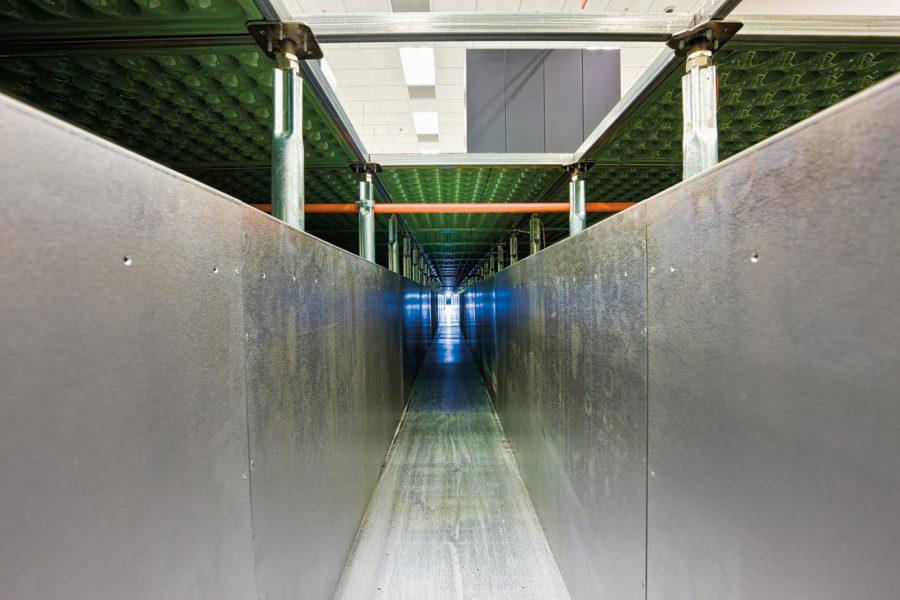UI supercomputing center turns 30 this year
March 10, 2016
A is for application: The most important letter that Dr. Edward Seidel thinks makes up the acronym for the National Center for Supercomputing Applications, or NCSA.
The NCSA hones in on this application process by analyzing the data they collect from supercomputing and learning how to apply it to the real world.
“I think those applications and how we’re going to change people’s lives and paradigms, how they work and how they live, (are) the things we have to look forward to and that’s what the center is going to be doing in (the next) thirty years,” said Scott Wilkin, associate director of economic and societal impact for NCSA.
But for now, the NCSA is celebrating its 30th anniversary this year.
Since 1986, the NCSA has widely contributed to many scientific advancements including the invention of the Mosaic web browser, the first popular web browser created by University students with the help of the NCSA, in 1993.
Get The Daily Illini in your inbox!
“The applications will drive what the center really does, what kinds of technologies it deploys (and) how it integrates,” said Seidel, director of NCSA.
Today, these technologies have greatly advanced.
On March 28, 2013, the Blue Waters supercomputer officially opened at NCSA. Blue Waters is one of the world’s most powerful and fastest-running supercomputers. According to the website, Blue Waters has the capability to perform about 1 quadrillion calculations per second and runs about 3 million times faster than the average laptop.
Blue Waters has contributed to major scientific advancements and discoveries including one involving the volcanic formation at Yellowstone National Park.
Until recently, the previous thought process, or the mantle plume hypothesis, defined Yellowstone’s geothermal activity.
“We are basically trying to address an outstanding debate on the origin of the Yellowstone volcanic system,” said Lijun Liu, associate professor in Geology, who originally questioned the mantle plume hypothesis.
Liu said that by using the technology of Blue Waters, he was able to construct a series of sophisticated models that allowed researchers to test many different hypotheses. Collectively, the model simulated over 40 million years of geological activity. Researchers discovered that the activity is not powered by a single mantle plume but rather by many moving plates.
“We are using Blue Waters now to try to find another solution for the formation of Yellowstone. We believe that Yellowstone is a good example to study super volcanoes. We hope that with this research we can find the universal mechanism that can explain the formation of super volcanoes global wide and that should be very important,” Liu said.
Because Blue Waters is one of the fastest supercomputers in the world, it is able to provide researchers with information much faster and much more efficiently than other supercomputers across the globe. Wilkin said that when researchers first started working on Blue Waters, they were able to advance their science by 10 years.
“We’re working with the companies that are working on your personal health. Two years ago, it took three to four weeks to run a genome; we’re able to do it on Blue Waters right now in a day. That’s going to change the way our lives are run because we’re going to have health information immediately,” Wilkin said.
Over the years, NCSA has changed research not only around the world, but on campus as well.
Seidel said that the NCSA utilizes just as many faculty from the arts and humanities as they do in engineering and sciences. He also said that they strive to continue to be a diverse hub for research so that knowledge can be acquired in all fields of expertise.
“It has supported a large number of staff and has created an environment where we clearly had the most powerful facility on any campus in the world. That not only has changed NCSA but has changed the view that the faculty, students and postdocs on campus have about what’s possible,” Seidel said.
Seidel stressed that while the center is focused on supercomputing, the NCSA would be nothing without its expert staff. He said that the NCSA is building a home for integrative, interdisciplinary research on top of advanced supercomputing.
Systems come and go, and in a few years Blue Waters will no longer be the fastest-running supercomputer, but the people are what always stay, according to Seidel.
“It’s more than having just a big piece of hardware here. It’s raised the sights of everybody on the campus and across the country,” Seidel said.







